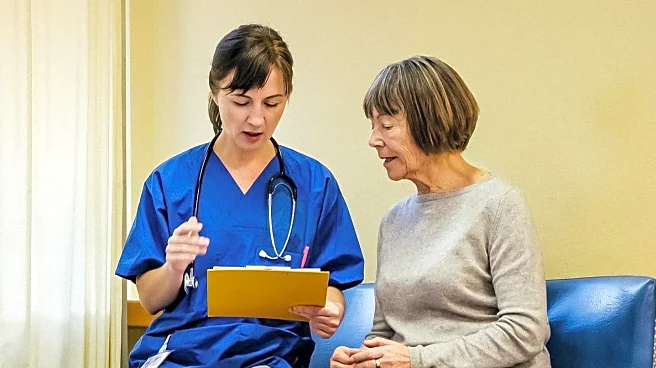What's Happening?
Hospital staff at the Mid and South Essex NHS Foundation Trust have participated in emergency drills to prepare for potential chemical, biological, radiological, or nuclear incidents. The exercises took place at Southend and Basildon hospitals, where emergency response teams donned hazmat suits and engaged in full-scale training. These drills are designed to ensure that the teams are confident and capable of responding to such incidents, no matter how unlikely they may seem. The exercises included building decontamination shelters and running through decontamination procedures, with volunteer patients being triaged and processed through the shelters. The drills are part of a broader emergency planning strategy across the NHS, allowing clinical and operational teams to train together in realistic conditions.
Why It's Important?
These emergency drills are crucial for maintaining readiness in the face of potential nuclear or chemical incidents, which, while rare, could have devastating consequences. By conducting these exercises, the Mid and South Essex NHS Foundation Trust is ensuring that its staff are prepared to handle such emergencies effectively, thereby safeguarding public health and safety. The drills also provide an opportunity for staff to troubleshoot and refine their response strategies, ensuring a coordinated and efficient approach in the event of a real incident. This proactive preparation is vital for minimizing the impact of such incidents on the community and the healthcare system.
What's Next?
Similar emergency drills are planned for Broomfield Hospital in Chelmsford early next month. These ongoing exercises will continue to enhance the preparedness of the NHS staff across different locations, ensuring a consistent and effective response to potential nuclear or chemical emergencies. The continuous training and evaluation of emergency response protocols will help identify any gaps or areas for improvement, further strengthening the overall emergency preparedness of the healthcare system.









